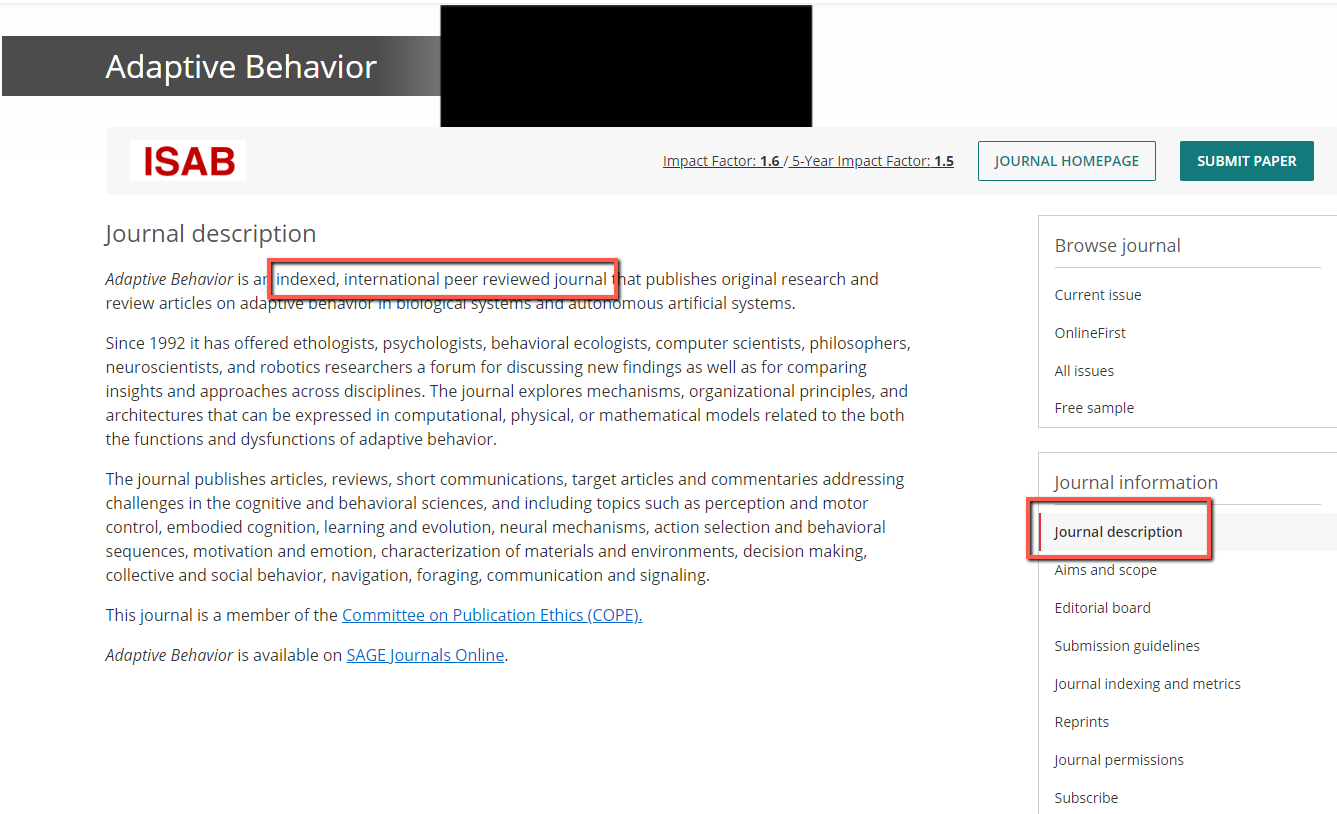Peer-reviewed articles
What is peer review?
Peer review is a system used to decide if an article should be published in a peer-reviewed journal. Each paper submitted to a peer-reviewed journal is read and evaluated by experts in the article’s subject area. The reviewers assess the article’s validity, importance, and originality, and then recommend whether it should be published in the journal. The reviewers’ suggestions are considered by the journal’s editor, who makes the final decision about whether to accept or reject the article.
Peer review ensures that quality papers are published in the journal. The reviewers confirm that articles do not contain technical problems, ethical issues or significant errors. They also verify that the authors used an appropriate study methodology, analyzed and interpreted the results correctly, and provided enough evidence to support their conclusions. Since peer review filters out work that is poorly done and makes sure that the manuscript is accurate, publication in a peer reviewed journal shows that the article is likely to be trustworthy.

Use advanced search options in databases
When searching for articles in an online database, it is sometimes possible to limit results to those from peer-reviewed journals. This option normally appears on the initial or advanced/expert search page.
In ProQuest databases, such as CBCA Complete, select the box labelled “peer reviewed” to limit your search results to show only articles from peer-reviewed journals.

In EBSCO databases, such as Academic Search Complete, check off the box called “peer reviewed” to limit the search to only articles from peer reviewed journals.


Look at journal websites
Read the journal’s "About us" section on their website to see if the words "peer-reviewed" or "refereed" are used. Also look for editorial statements (such as "articles are evaluated by two to three subject experts") or author instructions (for example, "please remove identifying information for the blinded review process").
The "About Us" page of the journal, Adaptive Behavior:


How do I know if articles are scholarly or peer reviewed?
This video examines articles found in a database search to see whether they are likely scholarly or peer reviewed.
Video transcript
How do I know if articles are scholarly or peer-reviewed?
Here is an example: let’s imagine you are writing an essay about pay equity and women. You perform this keyword search in Academic Search Complete (a large, multi-disciplinary database).
Let’s look at a few articles from the results list and evaluate whether they are scholarly or peer-reviewed. This article from the results list says it’s from a periodical.
The article is very short. It has no citations or reference list. There are no headings or sections. The article is from a trade journal - which is not scholarly: it is written for lawyers, by other lawyers.
Here is another article from the results list. It is only 3 pages long. It is written for a general audience. There are no citations or reference list, no headings or sections, and no author credentials. This is an article from a magazine – which is not scholarly: it is written by a journalist.
Here is another article from the results list. The database states the article is in an Academic Journal and that it’s 22 pages long. We can see here that a university publishes the journal — that’s a good sign! The authors have academic affiliations. There is contact information for one of the authors. If we examine the structure, we can see that the article is divided into sections with headings. The language is academic. There are also tables, graphs, data and charts – although not all scholarly articles have these. We can see that there are references: there’s an extensive bibliography of sources at the end of the article. There are also in-text citations to sources throughout the article. In conclusion, this is an academic, scholarly, peer-reviewed article that relates directly to your assignment topic.
Evaluation of sources is especially important when using Google Scholar or large, multidisciplinary databases like Academic Search Complete.
For more tutorials, visit library.concordia.ca/learn



